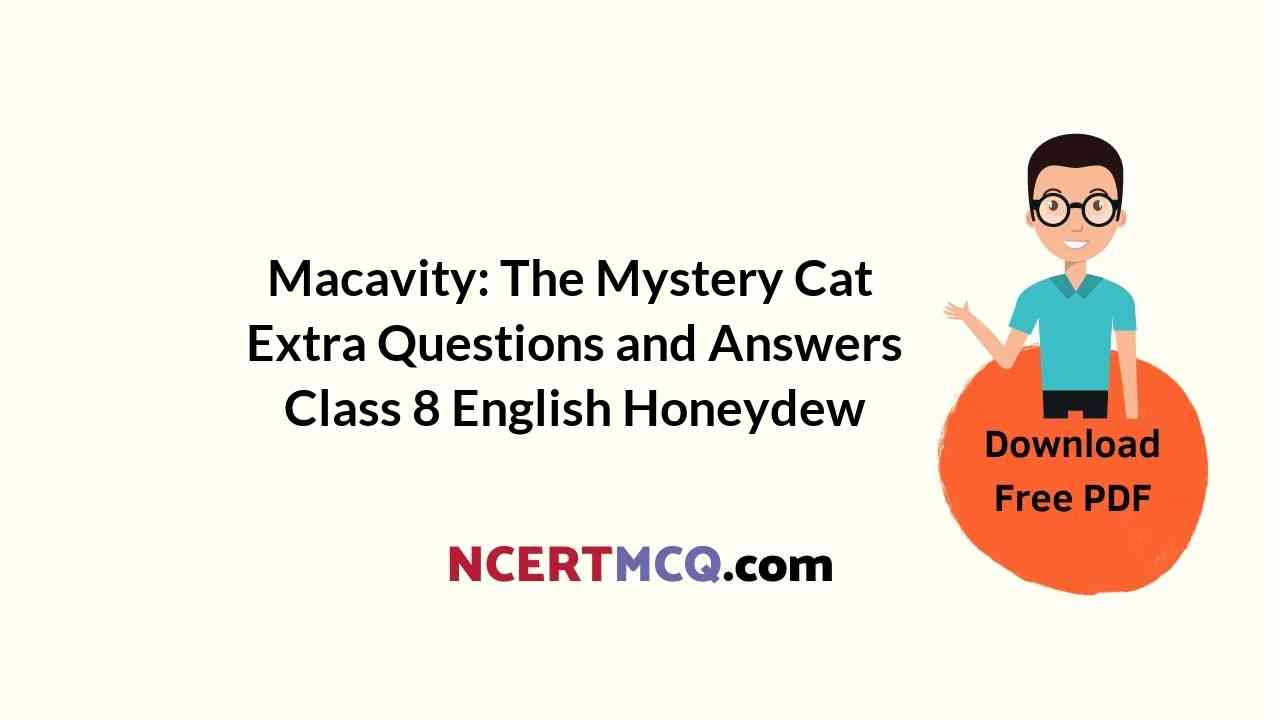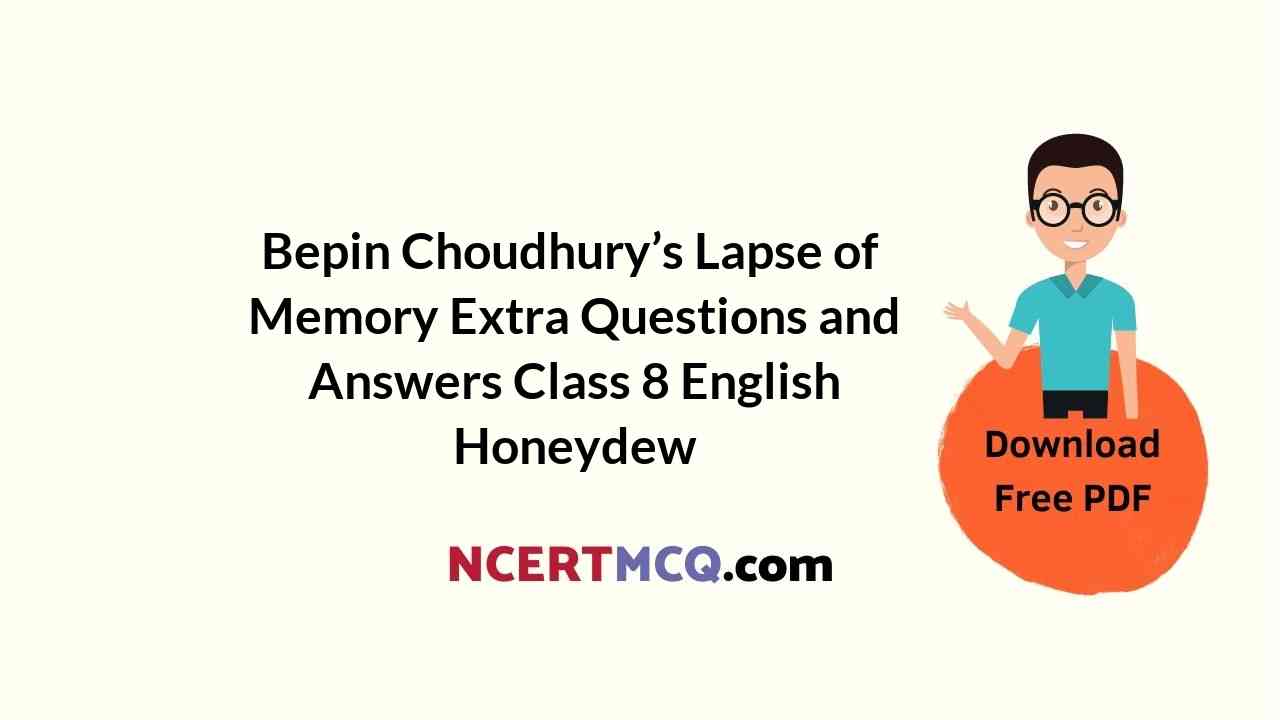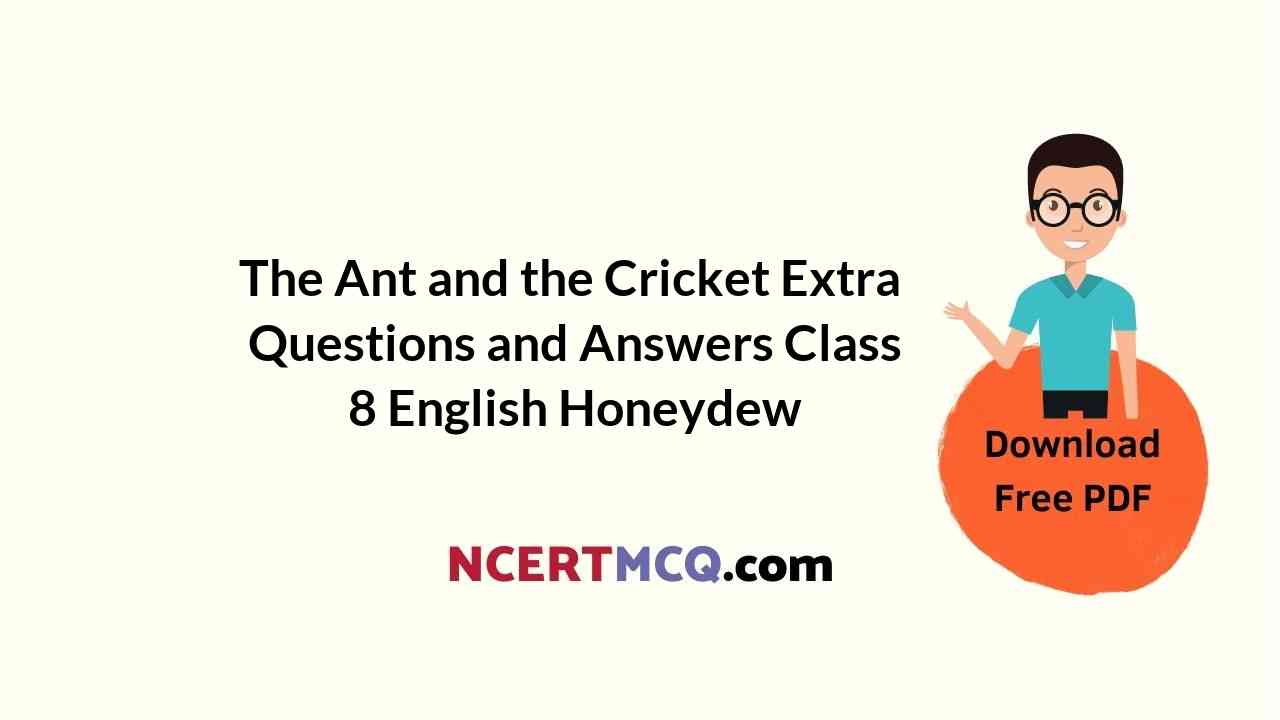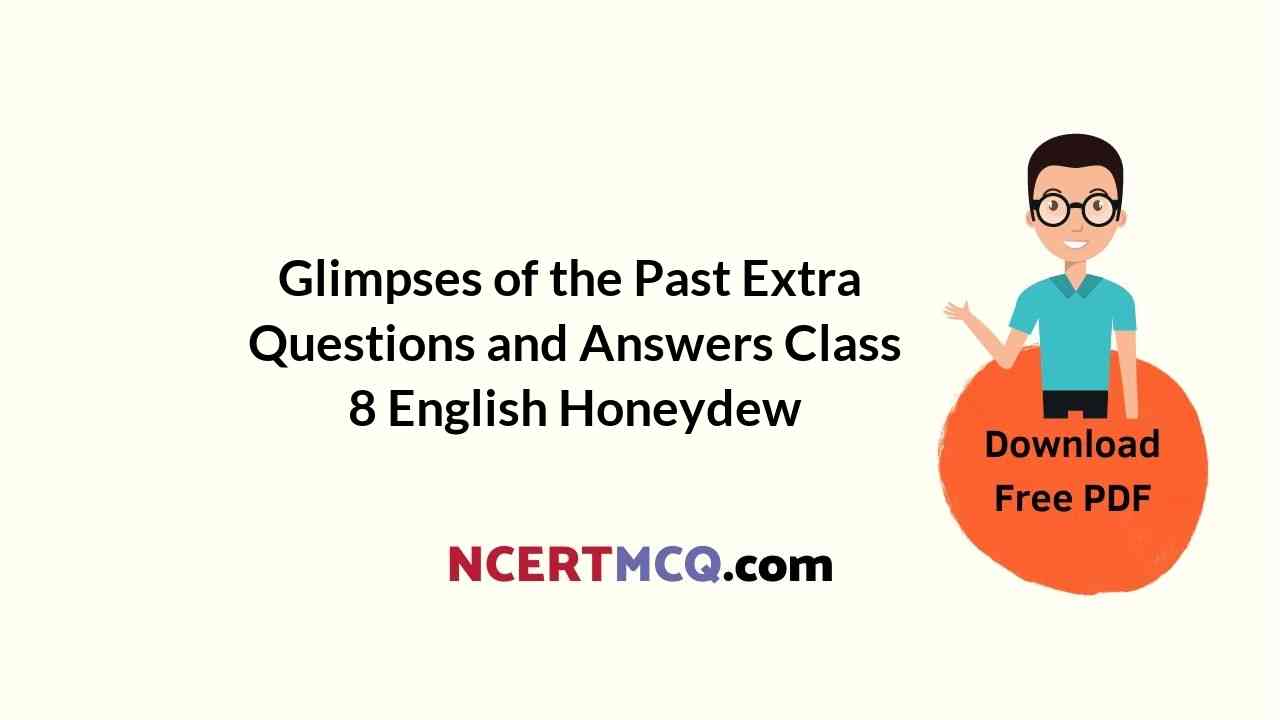Here we are providing A Gift of Chappals Extra Questions and Answers Class 7 English Honeycomb, Extra Questions for Class 7 English was designed by subject expert teachers. https://ncertmcq.com/extra-questions-for-class-7-english/
We have created the most comprehensive NCERT Solutions for Class 7 English Chapter 2 A Gift of Chappals. These solutions are help to score more marks in your Board Exams.
A Gift of Chappals Extra Questions and Answers Class 7 English Honeycomb
A Gift of Chappals Extra Questions and Answers Short Answer Type
A Gift Of Chappals Extra Questions And Answers Question 1.
Who visited Rukku Manni’s place?
Answer:
Mridu is a young girl. Mridu went to Rukku Manni place alongwith her Tapi.
Gift Of Chappals Extra Questions Question 2.
What was the surprise for Mridu?
Answer:
Ravi took Mridu to the backyard to show her the newly foundation.
A Gift Of Chappals Extra Questions Question 3.
What was Kama famous for?
Answer:
Kama from Mahabharat used to give away everything he had which even included his gold earnings.
The Gift Of Chappals Extra Questions Question 4.
Why was beggar wait outside Ravi’s garden?
Answer:
The beggar was leaning against the trunk of the neem tree in Ravi’s garden for alms from ladies of the house.
A Gift Of Chappals Class 7 Extra Questions Question 5.
What did Mridu see in front of Ravi’s house?
Answer:
Mridu had seen the pair of chappals in front of Ravi’s house belonged to the music teacher.
Extra Questions Of A Gift Of Chappals Question 6.
How did the music teacher react to the act of Ravi?
Answer:
The music teacher compared Ravi with the lord Hanuman and called him a Hanuman incarnate.
Class 7 English Chapter 2 Extra Questions And Answers Question 7.
How was the name of the cat different?
Answer:
Ravi had named the kitten Mahendraverma Pallava Poonai in short. They were calling him Mahendran. Mridu liked the name because it sounded real to her and was different from the usual cute names kept for cats in general.
A Gift Of Chappals Worksheets With Answers Question 8.
What was the source of information about legacy of cat?
Answer:
Ravi felt that his cat was a descendant of the Rishi cat of Mahabalipuram. He claimed that during his class trip to Mahabalipuram, he had seen statue of a cat there which he believed was an ancestor of this cat. He felt that the lion in the emblem of the Pallava king was a close relative of his cat.
Extra Questions Of Gift Of Chappals Question 9.
Has Lalli learnt playing guitar?
Answer:
Lalli kept on going off tracks, It was like her train getting derailed again and again while the teacher’s was running smoothly on the track.
A Gift Of Chappals Short Question Answer Question 10.
What was beggar’s expectation from the ladies of the household?
Answer:
The beggar felt that the ladies of the household were very kind. They have enabled him survive for a week by giving him food to eat. He called them generous and found it hard to believe that they wanted to send him away.
A Gift Of Chappals Question Answer Question 11.
Ravi was confident and opinated. Do you agree or not?
Answer:
Ravi was an intelligent child. He had good observation skills and possessed sound knowledge of history. He was playful, but had a good sense of humour. He managed to get milk for the kitten in front of Paati’s eyes. He also applied his intelligence and gave music teacher’s chappals to the beggar. He was kind and generous and remembered the story of Karan which Rukku Manni had told him.
A Gift Of Chappals Worksheets Question 12.
What was Ravi’s argument for his charity of chappals to the beggar? ‘
Answer:
Ravi was upset with the elders because he had always been told by them to be kind towards animals, but he had to hid milk for kitten. Rukku Manni had told about Karan who would give away everything he had to help others. Ravi had tried to help the beggar by giving away the music teacher’s chappals to him, but still Rukku Manni scolded him.
A Gift of Chappals Extra Questions and Answers Long Answer Type
Extra Questions For Class 7 English Chapter 2 Question 1.
The children move by seeing the pathetic state of the needy. What trait do they have should they be appreciated or scolded?
Answer:
The love of animals especially for young and dependent ones is evident in the story as well. But they passion to look after them is often looked down upon by elders. Rather than allowing them to follow their heart, they are instructed to be at safe distance from them. In juxta position of what is preached and practiced, confuses the young and sensitive minds.
Question 2.
Children’s world is full of spontaneity and imagination. Elucidate.
Answer:
Ravi hid the kitten to a safe place yet was excited to display it to Mridu, the like-minded one. He fed it with his own share of milk without letting Patti to know about it. When he donated slippers to beggar after seeing his blisters. He wanted to give his own. He christened the kitten after relating its ancestors to be from Mahabalipuram Rishi cat. Thus their world is full of imagination and spontaneity as they have creative minds.
A Gift of Chappals Extra Questions and Answers Reference to Context
Question 1.
Mridu didn’t have much time to wonder about whose slippers they were, because Ravi dragged her to the backyard, behind a thick bitter-berry bush. There, inside a torn football lined with sacking and filled with sand, lay a very small kitten, lapping up milk from a coconut half-shell. “We found him outside the gate this morning.. He was mfewing and mewing, poor thing,” said Meena. “It’s a secret. Amma says Paati will leave for our Paddu Mama’s house if she lmows we have a cat.”
(i) Where was Mridu taken to?
(ii) What was there inside a tom football?
(iii) How was it drinking milk?
(iv) Where did they find the kitten?
(v) Find the word which means ‘wrapping’.
Answer:
(i) Mridu was taken to the backyard.
(ii) There was a very small kitten inside a torn football.
(iii) It was drinking milk from a coconut half shell.
(iv) They find the kitten outside the gate.
(v) Lapping.
Question 2.
Mahendran looked up, alarmed. He had just been sharpening his claws on the edge of the coconut shell. But worse than Ravi’s awful whoop EEK was a ‘Kreech…!’ from the window. What a weird sound! If Mridu was startled, M.P. Poonai was frightened out of his wits. Hair standing on end, he bounced up and scurried towards a bamboo tray of red chillies that had been set out to dry. Trying to hide beneath it, he tipped a few chillies over himself. “Mi-a-aw!” he howled miserably.
(i) Why was Mahendran alarmed?
(ii) What was the kitten doing with the coconut shell?
(iii) Where did he hide himself?
(iv) Why did he try to hide himself?
(v) Find out a word antonym of ‘bold’ from the passage.
Answer:
(i) Mahendran was alarmed when it heard screeching sound.
(ii) The kitten was sharpening his claws on the edge of coconut shell.
(iii) He hid himself beneath a bamboo tray.
(iv) When he heard the screeching sound of violin played by Lalli.
(v) Timid.
Question 3.
Mridu crept up to the window. Lalli was sitting a little distance away, awkwardly holding her violin and bowstring, her elbows jutting out and her eyes glazed with concentration. In front of her, with most of his back to the window, was the bony figure of the music master. He had a mostly bald head with a fringe of oiled black hair falling around his ears and an old-fashioned tuft. A gold chain gleamed around his leathery neck, and a diamond ring glittered on his hand as it glided up and down the stem of the violin. A large foot stuck out from beneath his gold-bordered veshti edge, and he was beating time on the floor with the scrawny big toe.
(i) Where did Mridu creeping upto?
(ii) What was Lalli holding?
(iii) Who was sitting in front of her?
(iv) What was the teacher wearing?
(v) Give the meaning of‘scrawny’.
Answer:
(i) Mridu crept upto the window.
(ii) Lalli was holding her violin and a bowstring.
(iii) The music teacher was sitting in front of her.
(iv) The teacher was wearing a gold bordered edged dhoti and a gold chain with a diamond ring.
(v) An unattractive thin and bony person or an animal.
Question 4.
Mridu and Meena followed Ravi. out. The beggar was already in the garden, making himself quite at home. He had spread his upper cloth under the neem tree, and was leaning against its trunk, apparently prepared to take a little snooze while he waited for the alms to appear. “Go away!” said Ravi sternly. “My Paati says it’s time you found another house to beg from!” The beggar opened his eyes very wide and gazed at each of the children one by one. “The ladies of this house,” he said, at last, in a voice choked with feeling, “are very kind souls”.
(i) Who was there in the garden?
(ii) What preparation were made by the beggar?
(iii) What did Ravi tell him?
(iv) Why did the beggar open his eyes wide?
(v) Change the word ‘apparent’ to an adverb.
Answer:
(i) There was a beggar in the garden.
(ii) The beggar spread the cloth and leaned against the tree.
(iii) Ravi told him to go away and to find another home.
(iv) The beggar opened his eyes wide as he was expecting alms from them.
(v) Apparently.










